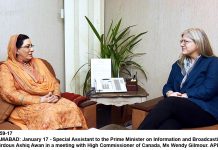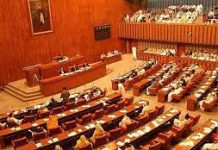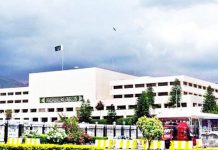UNITED NATIONS: Pakistan has called on the United Nations (UN) and its member states to fully integrate the pivotal role of family in national and international efforts and policies to achieve the objectives of the global development agenda that is aimed at banishing a host of social ills by 2030.
“Human experience over the ages has shown that the family is the most fundamental unit of society and the foundation of a cohesive and harmonious community,” Ambassador Maleeha Lodhi said at a high-level event organised by the Group of Friends on Family on Monday.
The group, which was launched last year, is composed of 25 countries from different regions of the world that support the traditional family and family values. It has three co-chairs – Belarus, Egypt and Qatar.
“As a proud member of the group and a firm follower of the UN Charter and the International Bill of Human Rights, Pakistan unswervingly supports all efforts to strengthen the institution of family and to harness its full potential to realise our shared objectives of prosperity, peace and security, and harmony in the world,” the Pakistani envoy said.
Monday’s event marked the annual International Day of Families. The UN General Assembly proclaimed the day in 1993, reflecting the importance the international community attaches to families.
Challenges abound with families bearing the brunt of the different crises sweeping so many parts of the world, the Pakistani envoy said, referring to the forced migrants and displacement, which was taking a heavy toll on families, especially children.
“As the international community embarks on implementation of the world’s most ambitious and wide-ranging development agenda, families have a crucial role to play in achieving the Sustainable Development Goals (SGDs),” Ambassador Lodhi said.
Underscoring the role of family, she said this “indispensable” institution was not specific to a particular culture or religion, and that it was valued by different systems and faiths.
“The institution of the family has proven its utility in the nurturing and development of children and in providing a secure and enabling environment to women,” Ambassador Lodhi said, adding “it is also the best primary educator, a vital economic driver as well as the most comprehensive and compassionate social safety net for the unemployed – the elderly and the disabled”.
“These multi-faceted dimensions of the institution should be employed by the member states and the relevant UN agencies in all programmes and policies, at all levels, to advance several SDG goals, including but not limited to eradicating poverty and hunger; improving health, education and nutrition; promoting women’s empowerment and gender equality; reducing inequalities; preserving the environment and promoting peaceful and inclusive societies,” she added.













